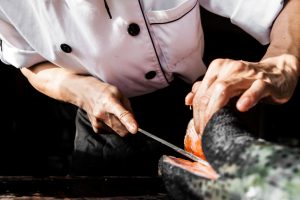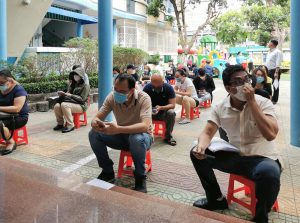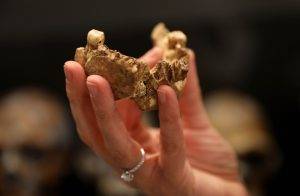Ray Cooper III is a 28 year old MMA fighter who just became a millionaire earlier this week at Professional Fighters League (PFL) World Championship Event dubbed “The Biggest Night In MMA”.
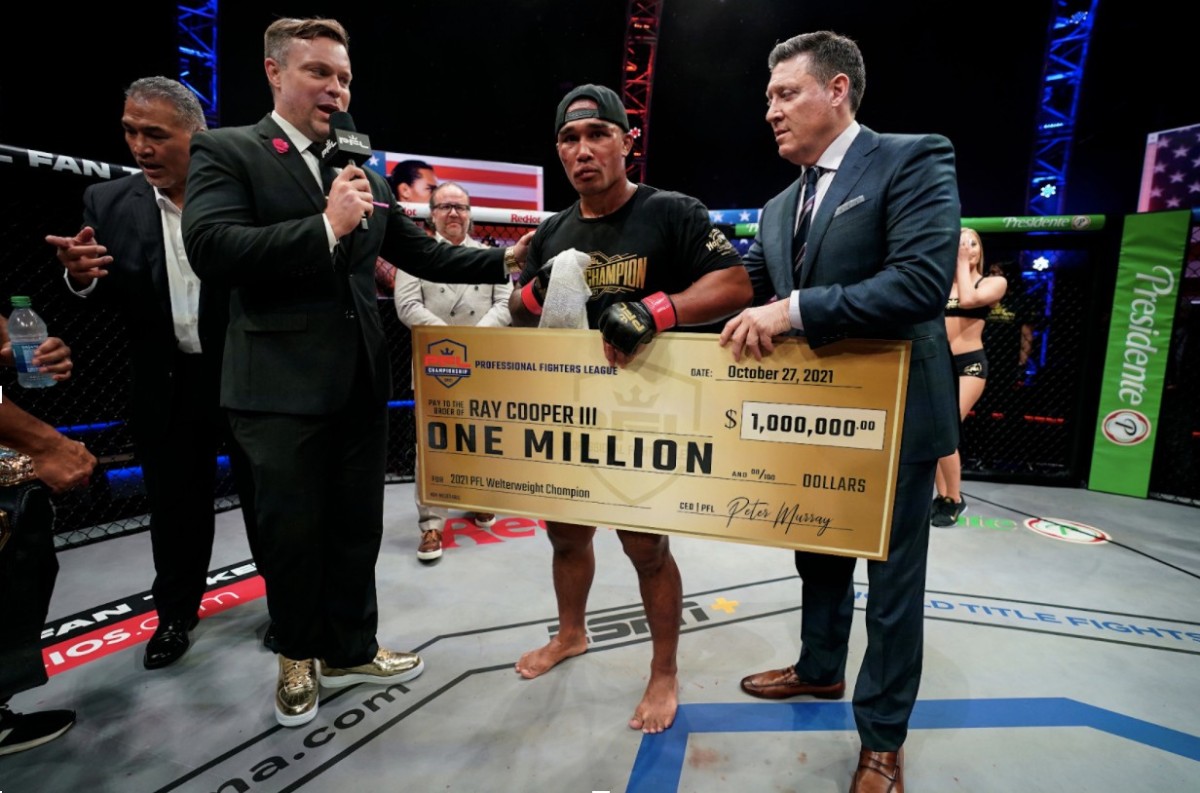
Speaking to Medical Channel Asia (MCA) in an exclusive post fight interview, Cooper’s advice for young and aspiring MMA fighters is to maintain discipline and consistency.
“Even though it’s boring sometimes, you have to do it religiously everyday. That’s the main thing I can say,” said Cooper.
With this win, the Hawaiian native who comes from a family of fighters brings his fight record to 23 wins 7 losses and 1 no contest. He follows in the footsteps of his father Raynard “Bradda” Cooper who holds a 14-9 professional record from his days competing actively in Shooto. When asked if this million-dollar paycheck is going to make a difference to the way he trains, Cooper kept it real with this reply:
“I’m a real secluded guy and keep my circle small. I only train with people I feel comfortable with and that’s my family, I don’t bring anyone else in. I train in a small garage underneath my home and I don’t go to any big gyms.”
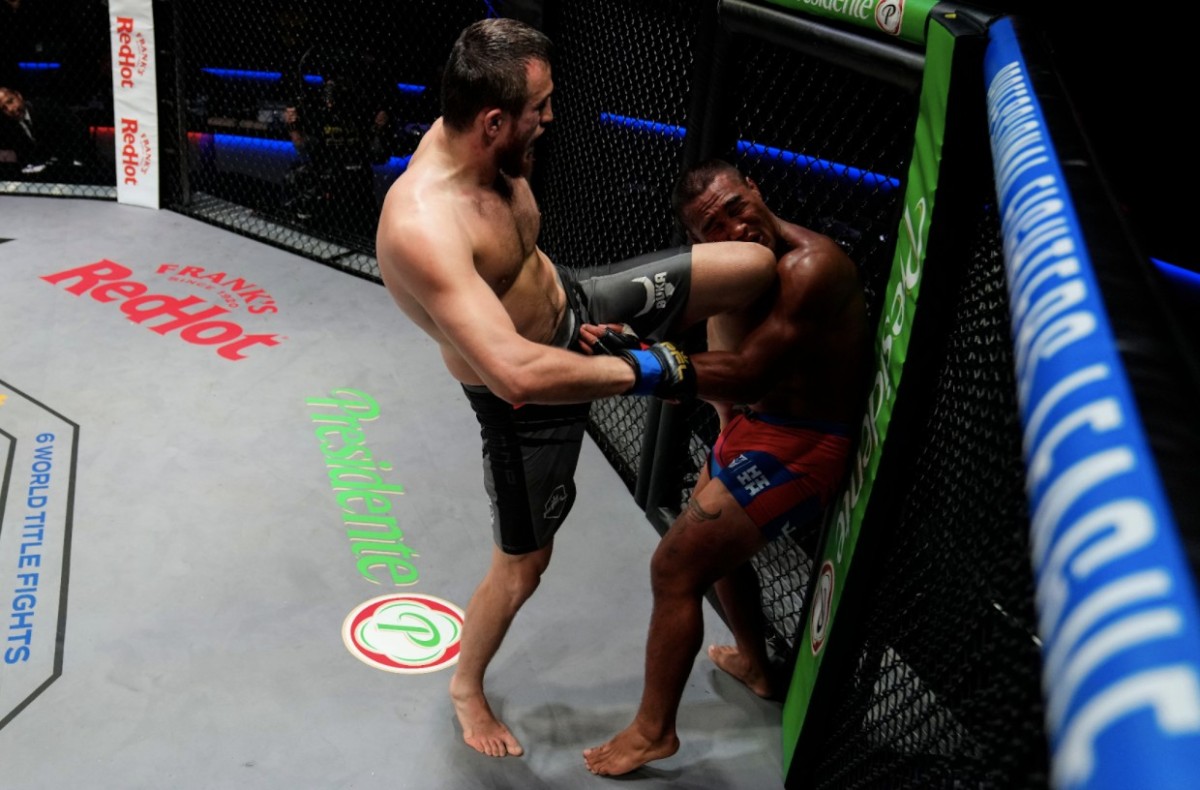
In the 5 round championship match against Russian beast Magomed Magomedkerimov, Cooper seemed to be suffering an early setback after taking some major shots. The Russian pressed his advantage in a bid to finish Cooper for the second time since they last met in the cage in 2018. But Cooper knew he was not done yet.
“Throughout (fight) camp, you get this tired. I knew I was in condition, I just had to slow it down, sit back, wait and catch my breath so I could explode again.”
And in Round 3, Cooper did exactly that.
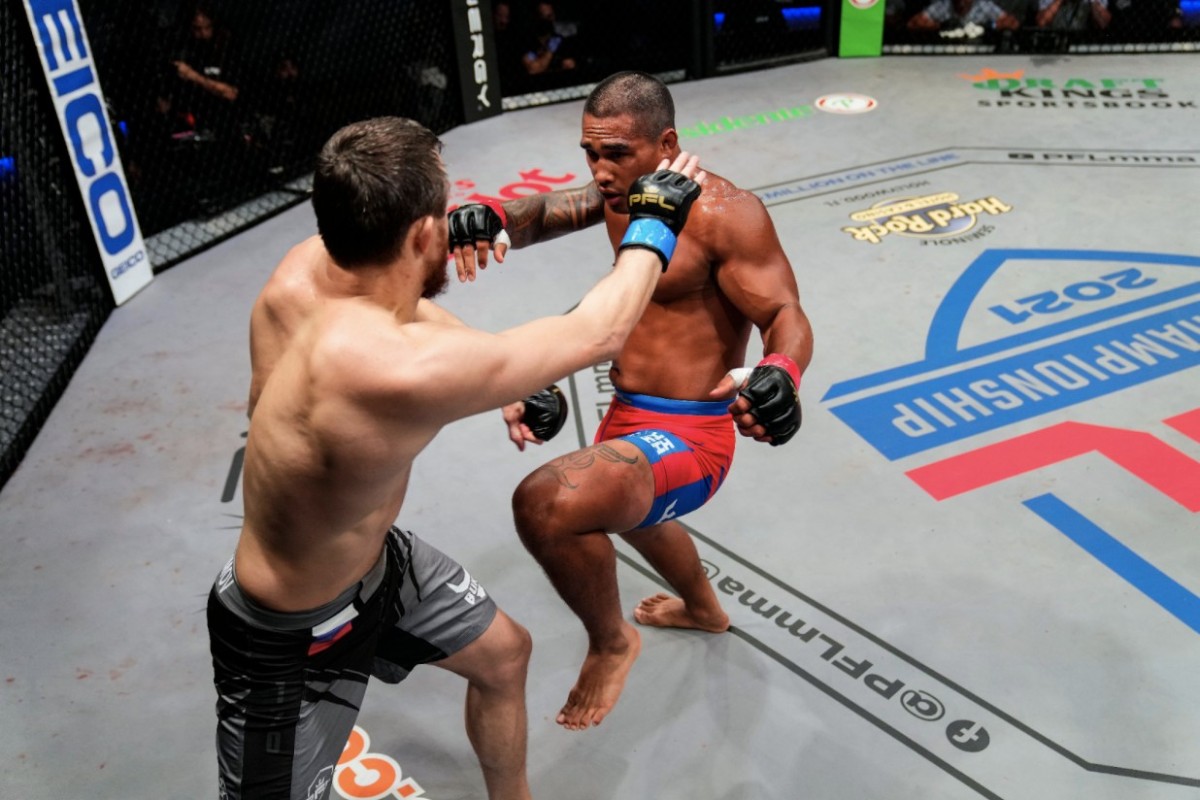
His perfectly-timed combination of shots caught Magomedkerimov squarely on the chin and laid him out cold in seconds. The sudden stoppage brought the entire sold-out crowd at Hard Rock Live in Hollywood, Florida, to their feet and easily made it to the top of the list for stoppages of the night.
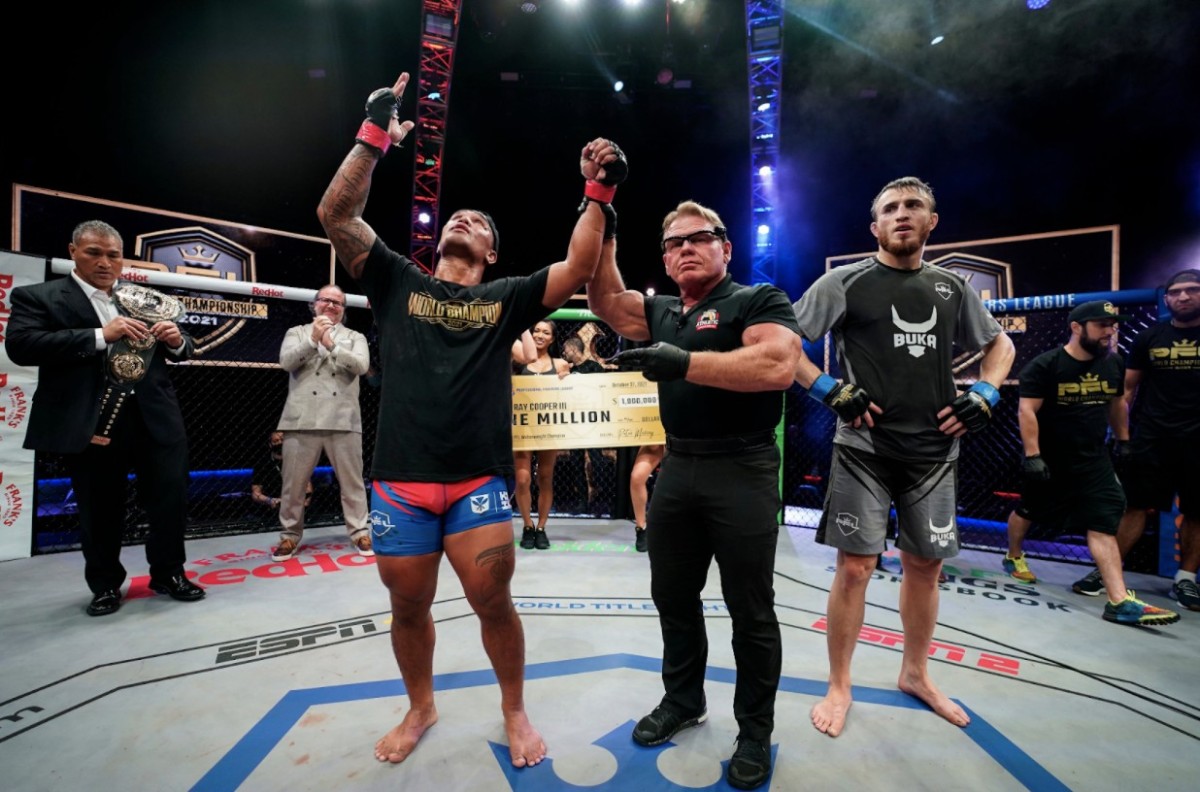
Q&A with an MMA Champion
What was the key to getting this win?
Cooper: My conditioning. It’s all due to my running, my roadwork and my conditioning. These were the big keys to my success.
How do you keep your body in optimal condition?
Cooper: I train every single day, I run everyday I run like 90 miles a month. I’m always hurting but I’d say, take your multivitamins and make sure you get your protein to recover your muscles.
What do you do for recovery?
Cooper: My body is always hurting throughout the (fight) camp. Just got to take care of it as best you can. Ice everything.
What does the Sports Doctor say?
For elite athletes, speeding up the recovery process seems to be the first priority. What is your advise for normal individuals or “weekend warriors” when it comes to healing from injury and pain?
Dr Sean: The main difference between elite or professional athletes and weekend warriors is that professional athletes spend a good portion of their time every day training. As such, their bodies are adapted to high load and high intensity of training.
When a person who does not have prior foundation training attempts to exercise infrequently (e.g. on the weekends), their body may not be accustomed to the level of training and may react by either showing overuse or stress symptoms. Typical complains would be aches and pain associated with where the tendons or ligaments attach to the bone (like the achilles tendon) or joint aches.
The second difference is that elite or professional athlete are more likely to have professional support in their training. This means that if they do have any aches and pain resulting from their training, they would quickly seek the advice of a doctor or physiotherapist to evaluate their complain or injury and advice if they can continue with the training regime they are undertaking.
What does it mean to “listen to your body” when it comes to training in high intensity sports like MMA?
Dr Sean: The body reacts to the amount of stress that is applied to it. When starting out, one may feel body soreness or tiredness after training. It is important to respect these symptoms as it is the body’s way to signalling that it requires rest in order to rebuild itself and adapt itself to the heavier loads. Over time, an athlete will realise they will feel less tired and less sore with the same amount of training. In this way, they can progress to even higher training loads.
If the athlete ignore the soreness or tiredness and continue pushing themselves, they will be more prone to injuries. Injuries will usually manifest as pain. This can happen as a result of overtraining or it may also happen due to the effects of the sport itself (e.g. in MMA, the athlete may injure himself from sparring with an opponent). This is when the athlete should really “listen to the body” and respect that the body is trying to signal that something is not right. They should get the are area that is painful evaluated by a medical professional before returning to sports.
There may also be other symptoms that do not indicate injury but rather an underlying medical condition. These include shortness of breath with minimal exertion or giddiness. Hence it is also advisable that athletes get themselves cleared by a medical professional prior to undertaking physical training or sports.
When is pain “too much” and how do you know when you should stop or push ahead especially when it comes to training in fight sports?
Dr Sean: An athlete’s pain threshold may differ during different situations. For example, during a match or competition, one may not notice the pain very obviously due to the adrenaline that is flowing around in the body. That is why there is usually a ring side doctor during competitions who can stop a fight even if the competitor wants to push ahead.
In training, the situation may not be so intense and an athlete may be more aware of his pain. 2 things should alert the athlete to ease off and seek medical attention:
(1) First is persistence. If the pain is persistently there and not getting better, especially if it is there even during rest periods, then it should signal the athlete that there may be an injury.
(2) Secondly it is deterioration. If the pain is getting worse, then the athlete should stop and get the condition evaluated by a medical professional
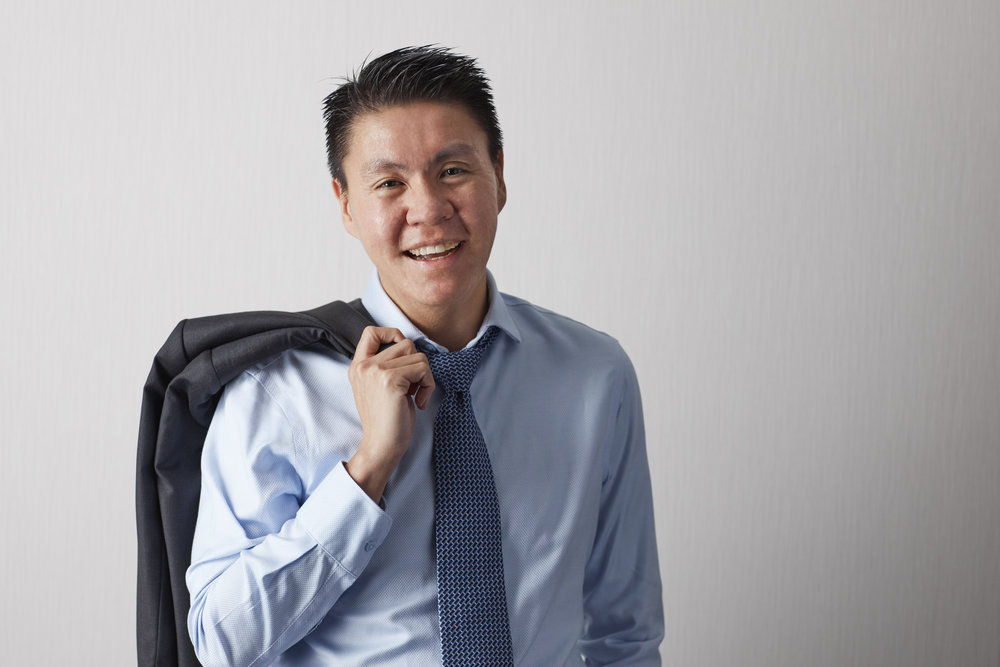
Dr Sean Leo is a sports orthopaedic surgeon at Orthosports in Singapore. He is also a cage-side physician for international MMA events.
He had also treated many professional soldiers in high demand vocations. Through his work and exchanges with other military services, he has been widely exposed to the latest programs in human performance optimisation, pioneering surgical techniques and rehabilitation programs which he has applied to his practice. He aims to return his patients back to their maximum athletic potential with minimum downtime.
He had received sub-speciality training in the field of regeneration, repair, restoration and resurfacing of joint injuries during his fellowship. He has particular interests in sports injuries in the child and adolescent athlete, ligament reconstruction, realignment surgery and cartilage transplantation, and knee replacement surgery.
Find out more about Dr Sean Leo at www.orthokinetics.sg!
Medical Channel Asia (MCA) has a team of journalists that cover sports and fitness events and topics globally. Press releases and media junket invites for upcoming events can be sent to [email protected].




